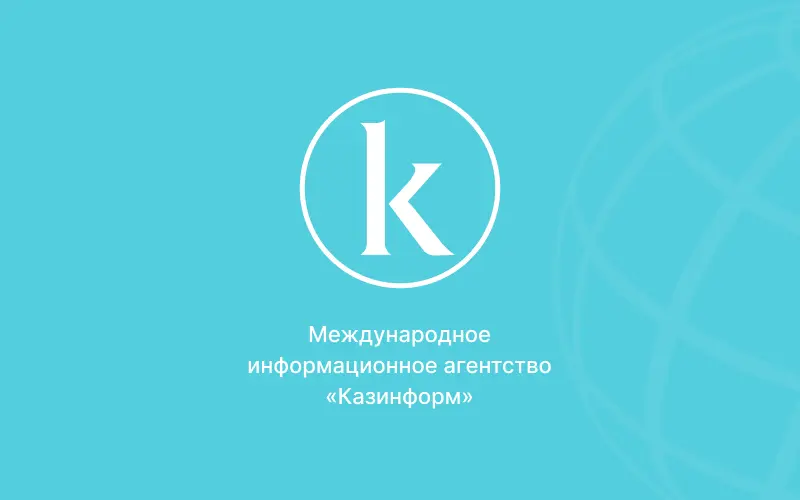Crisis management ? ?gift? to crisis
11:31, 23 February 2009
ASTANA. February 23. KAZINFORM /Muratbek Makulbekov/ Head of the State N.Nazarbayev many times emphasized in his speeches the strategic task on formation of new a generation of public managers. The solution of this task is of special importance in the growing financial crisis, when human resources become particularly important for any state. In this situation great responsibility falls on public officers. Are they ready to make timely and correct decisions? Acting Chairman of the Public Administration Agency Aryn Orsariyev, Bolashak sholarship holder, graduate of Sorbonne University, PhD, Politology, answers this and other questions of the Kazinform correspondent.

Mr. Orsariyev, what are the basic charachteristics of the modern system of professional training of public servants in Kazakhstan? Is training of our public servants meet the modern requirements?
To date there is a multilevel system of personnel for public service. The system includes the Public Administration Academy under the President of Kazakhstan and over 80 centers providing services to public servants in the field of education.
To study the best international experience the Agency organizes training of public servants in the leading foreign educational centers. Our partners are the world-famous London School of Economics and Political Science, the National Administration School of France, the Lee Kuan Yew School of Public Policy of the National University of Singapore and others. Over a thousand of public servants of central and local state agencies trained through the program during three years of its realization.
In accordance with the instructions of the Head of the State, set at the International Scientific-Practical Conference ?The role of public service in inhancing the country?s competitiveness?, the National School of Administration under the Academy of Public Administration and the National Center on Human Resources Management in the Public Service are established in order to improve the system of training of public servants and provision of public service with professional personnel.
Despite the considerable experience in this sphere there are still some problems that need systematic and intergrated solution. First of all it is the quality of training of public officers, effective use of money in training. We also see ill-developed methods of training in antirecessionary management.
You have touched upon the issue of crisis management?
Yes. Our public officers have worked in conditions of economy growth, sufficiency of budget funds in recent years. The current situation requires other approaches. In this regard the state needs personnel able to work profitably in terms of the budget deficit, reduction of administrative expenditures. People should be more stress resistant. Our task here is to provide the supply relevant to the demand. We should counter the crisis with the advanced crisis management.
In other words we should modify the infrastructure of education of public officers according to changing demands. At the same time we should understand that any recessionary phenomena in the financial-economic sphere have a cyclic character. After the end of recession begins the growth. In this regard, the approaches in the public service should be more universal. They should comply with the requirements to increase effectiveness and competitiveness of the personnel.
How do you see it in practice? Do you have an algorithm of implementation of these ideas?
The Agency is preparing to forge new approaches to the professionalization of public service through the professional and personal skills.
Currently we test applicants on judicial norms, rules and regulations. From now on we plan to use in recruitment process multiple parameters, among them professional qualifications, language knowledge, IQ, strategic thinking, ability to be good team member and leader, creativity. There will be 16 parameters in whole.
How do you plan to perform it? And what do you expect from such assessment?
Studying international experience, we agreed on that qualification assessment will be identified through the tests that predict the productivity of an applicant, taking into account personal qualities as well. This so called ?Public service test? similar to such international tests as TOEFL, GMAT, GRE.
Using this method we can get a whole picture of abilities and skills of applicants for public servants, who have already worked. It will allow to identify their strengths and weaknesses and use their strong points for the benefit. We should adopt individual development plans for this purpose. The higher position , the better qualification it needs. So the public officer will be able to train the missing parameters and have an opportunity to make progress in career. Officials will be interested in it.
I A personal desireprobably is not enough in this case. Is the infrastructure of public officers? training ready to this turn of events?
Our task is to adapt the system of the public officers? training to the needs of public servants. We have both administrative and financial resources for this purpose. To date, one percent from the payroll or two percent in the state bodies, where the staff amounts to 100 people, is used for the advanced training. Annually KZT 700-900 mln comes the countrywide. We should use these funds effectively. We will try to create competitiveness among training organizations. By their examples we will encourage independent educational centers and etc. The public officers? training will be based on the individual development plans and acceptable pricing facilities. The last one is very topical in the world financial crisis.
Besides, I think that all educational centers will have to review the duration of their educational programs for public officers and search for a balance between the requirements of the state bodies and individual education plan.
Thank you for the interview.